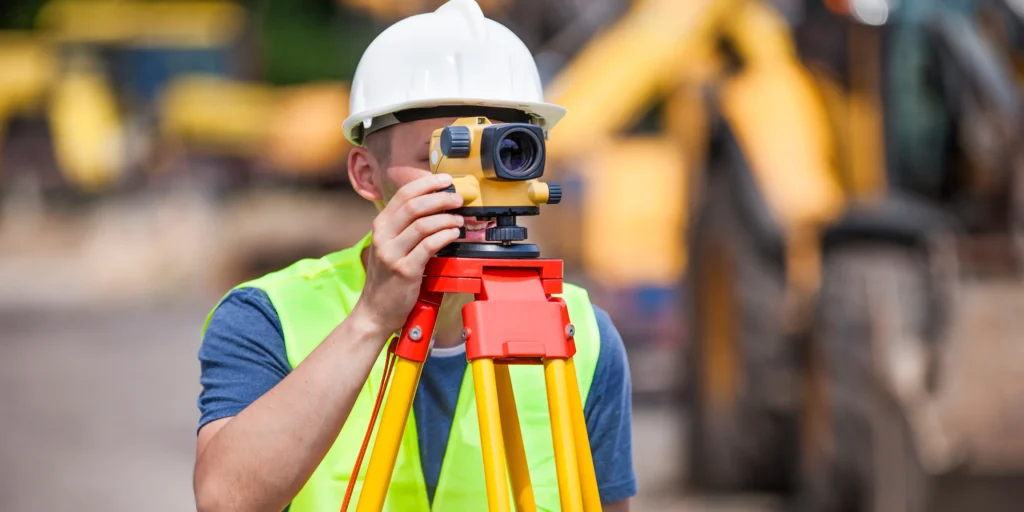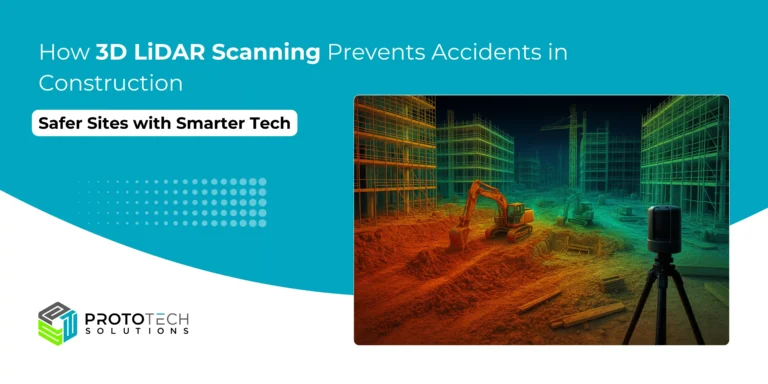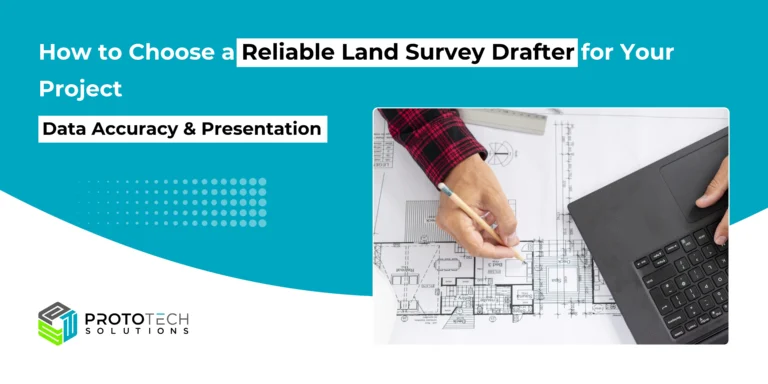Top 10 Questions to Ask When Hiring a Land Surveyor

Land surveying is the process of accurately determining and measuring the dimensions, positions, and boundaries of land parcels, often for purposes like property ownership, mapping, construction, and legal documentation. Surveyors use specialized equipment and techniques to create maps, establish property boundaries, and provide data crucial for urban planning, real estate development, infrastructure projects, and environmental assessments.
How to Hire a Land Surveyor
This is especially critical when it comes to real estate transactions, construction projects or development of the properties. Great land surveyors supply needed knowledge on property boundaries, topography, and legal descriptions that may have a profound impact on how you approach your projects.
Having learned about the educational and licensing requirements for land surveyors, you can begin evaluating potential candidates. Just like any search for a contractor or service provider, starting with recommendations from trusted friends and colleagues is always a wise approach.
To determine that you hire someone suitable to do land survey work, here are the ten questions land surveyors in Perth recommend asking before finally hiring him.
Questions to Ask a Land Surveyor

Hiring the wrong surveyor can lead to costly mistakes and even legal issues. To ensure you hire the best land surveyor for your needs, here are the top ten questions you should ask:
1. Are You Licensed and Insured?
It’s crucial to confirm that any land surveyor you’re considering is both licensed and insured. A licensed surveyor has met the necessary educational and professional requirements to practice in your area, ensuring they have the expertise to conduct accurate surveys. Insurance is also vital as it protects you from potential liabilities during the surveying process.
2. Do You Have Liability Insurance?
Ensure the land surveyor carries adequate liability insurance. Surveying work can be hazardous, and accidents or mistakes can lead to significant property damage or personal injury. Adequate insurance coverage protects you if something goes wrong. If a surveyor lacks liability insurance, consider it a major red flag and look elsewhere.
3. What Types of Surveys Do You Specialize In?
Land surveying includes various types of surveys, such as boundary surveys, topographic surveys, mortgage surveys, construction staking, and ALTA/NSPS land title surveys. Understanding the surveyor’s areas of specialization ensures they have the experience and skills required for your specific needs. Ask for examples of past projects similar to yours to gauge their expertise.
4. How Long Will the Survey Take to Complete?
Land surveying is a complex process that can take significant time, from initial fieldwork to the final report. Ask the surveyor for a realistic timeline for the completed survey. The surveying industry currently experiences a backlog, so turnaround times may be longer than usual. A reputable surveyor should be upfront about the expected timeline and any potential delays. Be wary of promises for unrealistically fast turnarounds.
5. What Technology Do You Use?
Modern surveying relies on advanced technology such as GPS, drones, and 3D laser scanning. Inquire about the technology and equipment the surveyor uses. Up-to-date technology enhances the accuracy and efficiency of the survey, providing more reliable results.
6. What Are Your Credentials and Professional Affiliations?
Professional affiliations with organizations such as the National Society of Professional Surveyors (NSPS) or the American Congress on Surveying and Mapping (ACSM) indicate a surveyor’s commitment to ongoing education and adherence to industry standards. Ask about their credentials and memberships in professional organizations.
7. How Do You Ensure Compliance with Local Regulations?
Land surveying is subject to various regulations. Ask how the surveyor ensures compliance with local, state, and federal laws. A knowledgeable surveyor should be familiar with the legal requirements in your area and ensure their work meets these standards.
8. Do You Have Experience with Similar Properties or Projects?
Land surveying is not a one-size-fits-all service. The specific challenges and requirements can vary greatly depending on the property’s size, location, history, and intended use. When hiring a surveyor, ask about their experience with similar types of properties or projects. An experienced surveyor will be better equipped to handle the unique aspects of your project, anticipate potential issues, provide more accurate estimates, and deliver a higher-quality final product. If a surveyor has limited experience in your particular needs, it may be worth looking for someone more specialized.
9. What Will I Get When the Job Is Complete?
When your land surveyor has finished their work, you must know exactly what deliverables you’ll receive. Understanding the final product helps ensure it meets your project needs and legal requirements. Here’s what you should expect:
Detailed Survey Report:
A comprehensive survey report is a standard deliverable. This report should include:
- Property Boundaries: Clear delineation of the property’s legal boundaries.
- Topographical Details: Information on the land’s topography, including elevations and significant natural and man-made features.
- Encroachments and Easements: Identification of any encroachments or easements affecting the property.
- Legal Descriptions: Accurate legal descriptions that can be used for property transactions or legal documentation.
Survey Plat or Map:
The survey plat or map is a visual representation of the survey findings. It typically includes:
- Boundary Lines: Marked property boundaries.
- Dimensions and Angles: Precise measurements and angles for property lines.
- Topographical Features: Elevations, slopes, and other topographical details.
- Structures and Improvements: Locations of existing structures, fences, driveways, and other improvements.
- Easements and Rights-of-Way: Any easements or rights-of-way that affect the property.
10. What Are Your Fees?
Cost is always a consideration. Ask for a detailed breakdown of the fees, including any potential additional costs. Make sure you get a written estimate to avoid surprises later on. While cost is important, it shouldn’t be the only factor in your decision.
When Do You Need a Land Survey?
Knowing when to conduct a land survey can make all the difference in managing or developing your property smoothly. A land survey is like a detailed map that accurately marks out crucial information such as property boundaries and terrain features. Whether you’re buying, selling, building, or settling boundary issues, a trustworthy land survey is invaluable. You’ll typically need a land survey in several key situations:
- Property Transactions: A survey ensures boundaries and easements are clearly defined before buying or selling land or property.
- Construction or Development: It is required to establish boundaries, verify legal descriptions, and plan for construction.
- Legal Disputes: Resolving property line disputes, encroachments, or easement rights often requires a survey.
- Insurance Purposes: Some insurers may require a survey to determine property value and risk.
- City Planning and Zoning: Ensures compliance with local regulations and zoning laws.
- Mortgage or Financing: Lenders may request a survey to protect their investment and ensure property boundaries.
Conclusion
Hiring the right land surveyor is essential for the success of your project. By asking these key questions, you can ensure you select a qualified, experienced, and reliable professional who can provide accurate and comprehensive surveying services. A thorough land survey can save you time, money, and potential legal issues in the long run.
Whether you’re starting a new construction project, purchasing property, or resolving boundary disputes, a competent land surveyor is your invaluable partner in navigating the complexities of land ownership and development. Take the time to vet potential surveyors carefully, and your efforts will pay off with precise, trustworthy results that form the foundation of your project’s success.
Need Outsourcing for Land Survey Drafting

At ProtoTech Solutions, we provide comprehensive land survey drafting services tailored to meet the unique needs of our clients. Our team of skilled professionals leverages cutting-edge technology such as AutoCAD, Civil 3D, MicroStation, Revit, Navisworks, and Autodesk Recap Pro and extensive industry expertise to deliver precise, accurate, and reliable land survey drafts. From initial site analysis to final deliverables, we ensure every detail is meticulously captured, helping clients make informed decisions and streamline their project workflows.
Our services encompass topographic surveys, boundary surveys, ALTA/NSPS land title surveys, As-built surveys, construction staking, and more, ensuring compliance with all regulatory standards and enhancing project efficiency. By integrating advanced CAD tools and software, we offer scalable solutions that cater to projects of any size or complexity.
At ProtoTech Solutions, we are committed to delivering excellence, fostering strong client relationships, and driving successful project outcomes through our dedicated land survey drafting solutions. Partner with us for precision, reliability, and unmatched quality in land survey drafting.
Our team is dedicated to understanding and exceeding our client’s expectations at every stage of the project. We strive to maintain open communication, provide timely updates, and address any concerns promptly.






